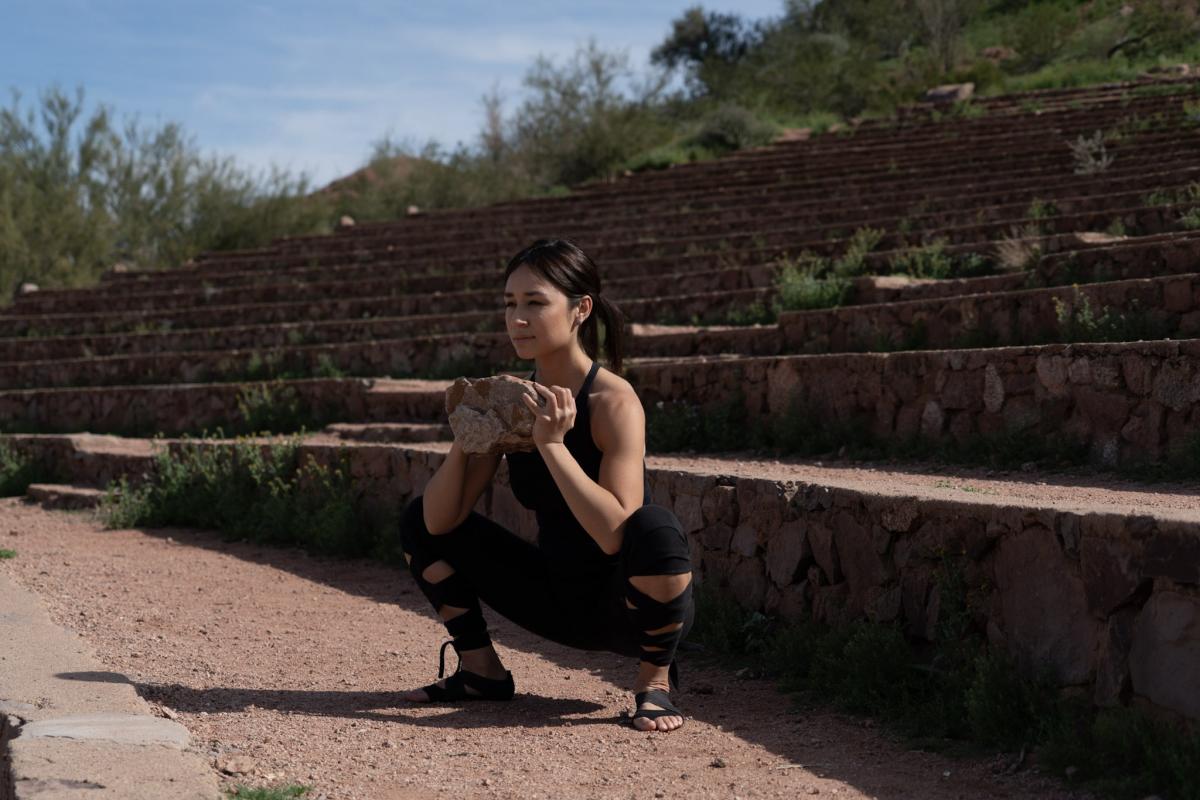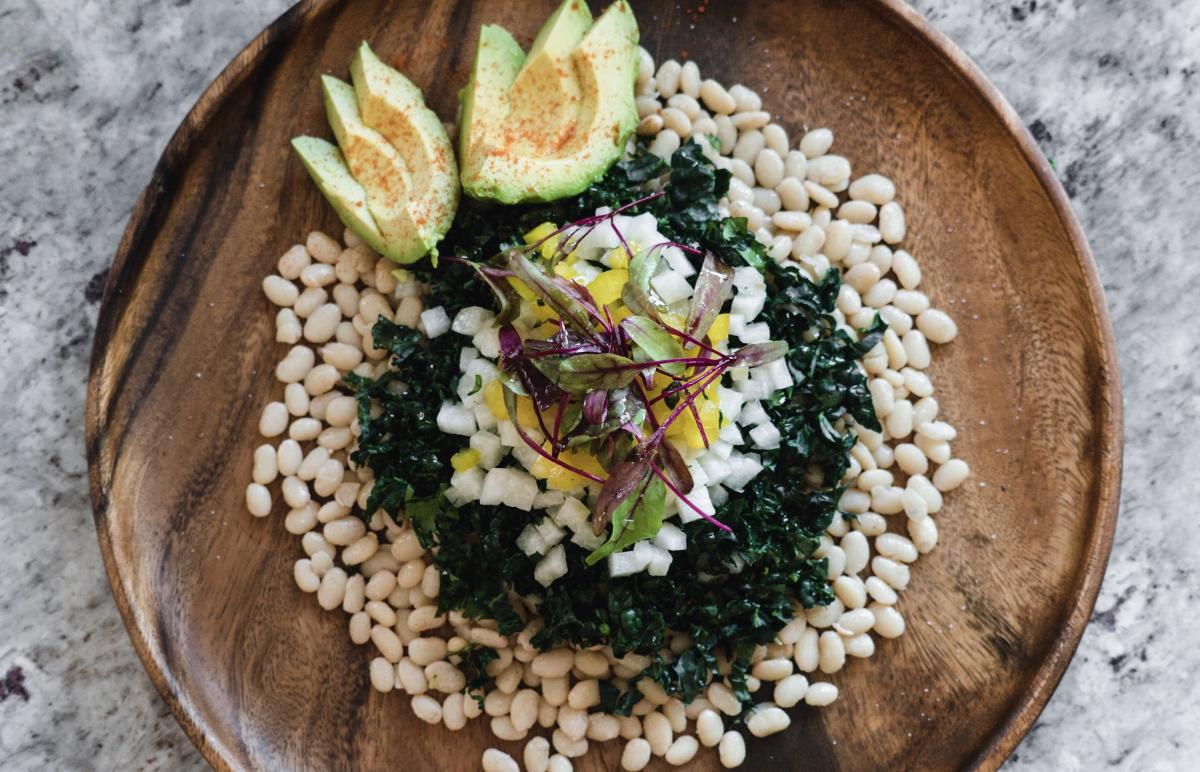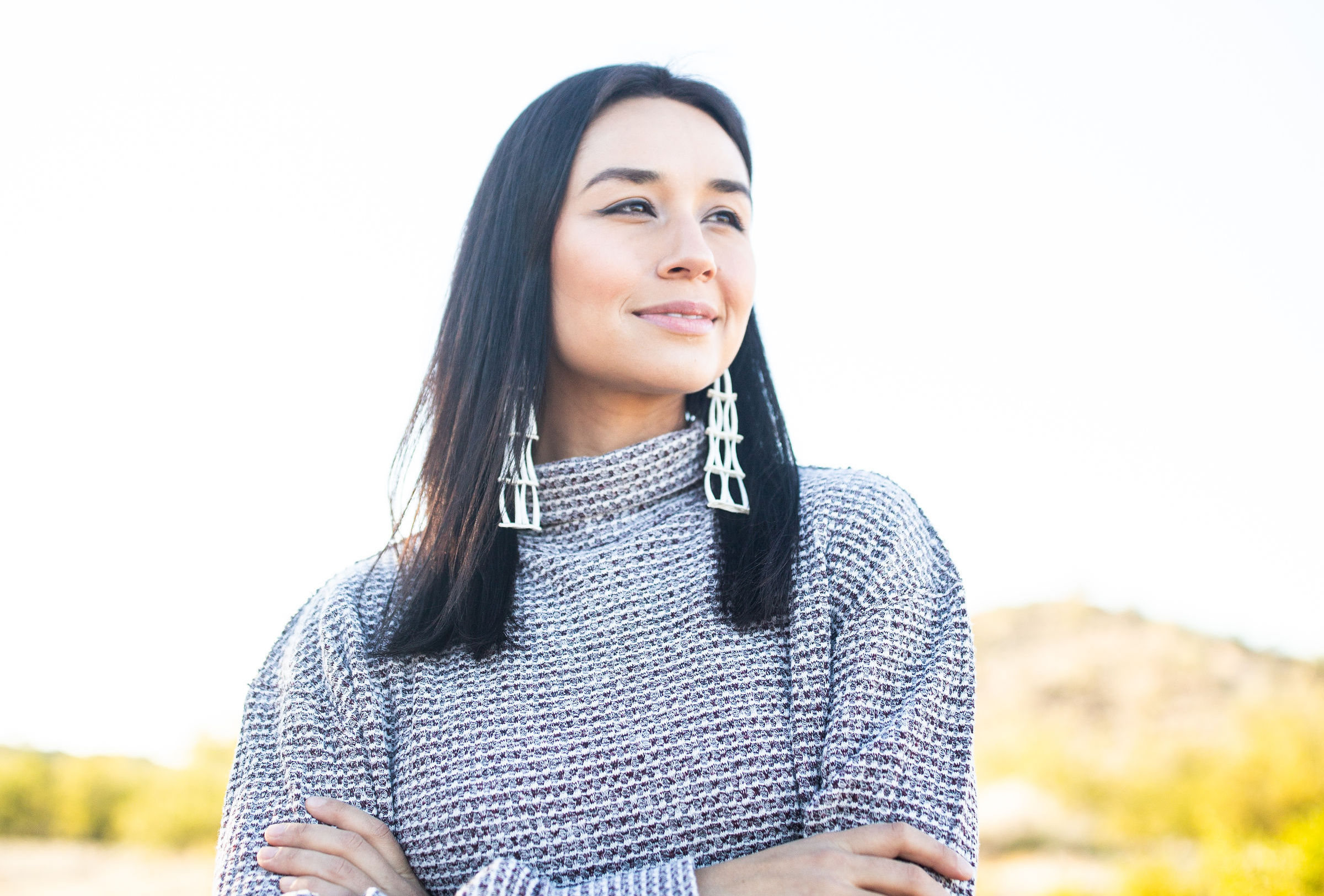Feeling foiled by newfangled fitness trends? Has fad dieting left you famished? Chelsea Luger ’10 understands. Speaking from her home in Phoenix early one morning while her baby daughter Alo sleeps, Luger describes an approach to wellness she’s championed—one that’s been generating quite a buzz. “It’s not just about food or eating,” she says. “It’s a mental, physical, spiritual, and emotional approach.”
Luger, who spreads her message predominantly via social media, is in many ways a wellness guru of a modern ilk. But her inspiration—indigenous knowledge—sets her apart. “It comes from generations of spiritual and lifestyle teachings,” she says. “It draws from what most Native American people have always recognized.”
Stereotypes of modern Native life are clouded by grim images of poverty, substance abuse, and health issues. But on her website Well for Culture, Luger paints a different picture. There you’ll find a colorful mirage: bowls of fiber-rich tepary beans or kale-and-bison salads; tempting purple potato and blue-corn pies; and svelte millennials exercising in the “earth gym” (a.k.a. the outdoors), framed by tawny desert mountains and beach sunsets.
Luger was raised in North Dakota and is of Ojibwe and Lakota descent. She focused on Native American studies at Dartmouth before earning a graduate degree in journalism at Columbia University. While working as a personal trainer in New York, she began exploring wellness—and found that insights from her upbringing were instrumental in informing a more holistic approach to moving, eating, and staying healthy.
Teaming up with now-husband and photographer Thosh Collins, Luger launched Well for Culture as a humble social media initiative in 2013. The duo’s first goal was to express images of Native life that defied damaging stereotypes. “Stereotypes harm us,” Luger says. “They lower the bar for what young native kids grow up believing that they can achieve, and they’re just an injustice—we deserve to be viewed in the same dynamic light as any other group of people.”
Today Well for Culture has grown into a full-blown resource hub expressing that very dynamism. The website hosts exercise videos, recipes, and articles; Luger and Collins also travel frequently to host workshops, consult, and give speeches. In January, Luger was named among Bon Appetit magazine’s “Healthyish 22,” a shortlist of young entrepreneurs who are reimagining wellness.
Luger is quick to note that Well for Culture is not just relevant to indigenous people. “We firmly believe that these methods are applicable to all, and that there’s so much value in indigenous teachings that the rest of the world hasn’t been exposed to yet,” she says. “I’m excited about the exposure we’ve been getting, because it’s a new way for non-Native people to see, to understand, and to engage with indigenous people and Native culture.”
Want to learn more? Ahead, you’ll find three driving principles of Well for Culture that are well worth mulling over.
Three Ways to Incorporate Native Wellness into Your Life

1. The world is your gym.
Luger draws inspiration for the “earth gym” from Dakota Sioux physician Dr. Charles Eastman, an 1887 Dartmouth grad. In 1921, Eastman said: “The gym is not the best place for young people to develop their muscles. They should season their muscles in the sun, in the fresh air, in the spring water coming down from the mountain—that is where you get your nerve tonic.”
“We try to cater to all people, regardless of what you have access to—and everyone has access to the outdoors,” Luger says. From squatting with logs to picking up rocks as weights to climbing a mountain, you can find plenty of free fitness opportunities outdoors. Embedded in Native culture is a deep respect for the land—and use of the earth gym can also contribute to the wellness of the planet. “The more time people actually spend on the land, the more they will love and respect it,” she adds.

2. Fad dieting is out; values-based eating is in.
“One of the most devastating components of colonialism has been the removal of our food systems and our food economies,” Luger says. “Not only the foods themselves but the lifestyle that surrounds those foods—what kept us healthy for so many years.”
Luger doesn’t like to use the term “diet.” She’s not a nutritionist or a doctor, and she doesn’t like telling people what they should or should not eat. But she does believe in combatting the damage done to Native foodways through education about ancestral ingredients and knowledge. And her own diet, based on the avoidance of ultra-processed foods and sugar, intermittent fasting, and pairing plenty of plants with smaller quantities of meat, mirrors what she’s learned. (For examples, check out her recipes.) She recommends a value-based approach to eating: think about where food comes from, know whether it was fairly grown and traded, try growing it yourself.

3. Wellness is not selfish.
“Indigenous people tend to be very family-oriented and community-oriented—that’s just how we’ve always operated,” Luger says. By contrast, modern diet fads and exercise trends tend to push an egoistic view of personal transformation. And while methods to achieving wellness should vary individually, a person’s wellness doesn’t exist in isolation from the community. “Strong individuals create strong families which in in turn create strong nations,” Luger explains. “We need strong leaders to carry us into the future, and people who are healthy to carry on our traditions.” Since your own wellness can benefit those in your community, she adds, you shouldn’t feel selfish taking an hour out of the day to exercise or spending a bit extra from your budget on better-quality food.
For more information, head to wellforculture.com, or read about Luger on Healthyish.

